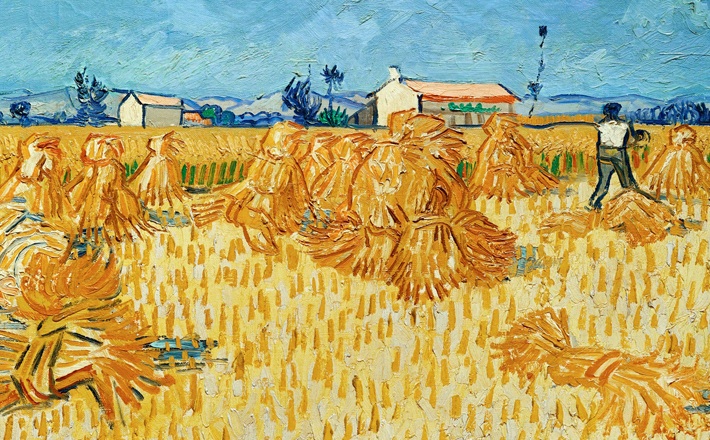Commentary on 2 Kings 5:1-14
Last fall, the wife of a good friend and colleague was diagnosed with lymphoma.
What they had enjoyed for so much of their lives — their work, daily routines, their relationships — was suddenly unsettled. They describe their experience as disorienting, almost like going to a foreign country with no time to pack.
As travellers from the land of health, they found that the land of serious illness was full of obstacles they didn’t necessarily expect and didn’t always feel prepared to handle. In the Nation of Cancer, they discovered that their roles and identities were turned upside down, the language (“Disease”) was difficult, and the rituals were strange and often difficult to understand.
The Healing Prophets
Unlike most biblical prophets, Elisha and his predecessor, Elijah, frequently served as escorts and advisors to those hoping to cross from the land of sickness and death to the land of life and health. Between them, we count at least five such “crossings.” Their healing miracles are marked by a wide array of rituals — series of actions done in a particular order and place — that often seem strange to today’s readers. Today’s story, the healing of Naaman in 2 Kings 5:1-14, is representative of boundary crossings and rituals as a path to wholeness.
Naaman Enters the Land of Illness
Naaman, the military commander of Aram — a great (read: “rich”) man and a man whom the King esteemed — had everything going for him. Except that one day, his nagging suspicion about the strange things happening to his body became a certainty. He had leprosy. As the terrible realization of his new reality began to sink in, he must have thought, “Anything but this. Please let it be something else!” There was no known cure for leprosy; it was a slow moving, debilitating, painful and socially isolating disease. Even his wealth, his status, and his connections were not likely to be of any use. His journey into the land of illness had begun.
The story in 2 Kings seems to begin in the “middle of things,” by which point the disease had progressed considerably. Naaman, not the type of man to sit idly by, had likely tried everything that his significant resources permitted. He must have been desperate if he was willing to take advice from to his wife’s Israelite maid. She was the lowest of the low in terms of status; she was part of the spoils of war, a servant, a foreigner, a woman, and young. In fact, the author doesn’t even record her name. Naaman’s willingness to act on this young woman’s advice, points to his dislocation and signals his vulnerability — a powerful man looking to the powerless for help.
The Path to Health is Full of Obstacles
The young maidservant indicates that there is a prophet in Samaria, a man whom she is certain can cure her master of his disease. Naaman couldn’t just call to make a discrete appointment though. Consulting this prophet would involve leaving his own country to enter the land of Israel, Aram’s enemy. The text suggests that Israel wasn’t even a particularly worthy opponent, with Naaman having accomplished a successful raid in the recent past.
At any rate, not quite sure how to navigate this new land of illness, Naaman tells his King what the Israelite servant girl has said. The King, not quite catching the part about the Israelite prophet, but hoping he can do something for his military commander, sends a letter to the King of Israel instead.
A bit like a medical referral getting lost en route, Naaman’s case is held up by bureaucratic twists and turns. Israel’s king panics when he receives the letter — how in the world is he supposed to cure leprosy? And if he doesn’t, will Aram attack again? Is this some kind of trick? Interestingly, the King of Aram could have asked for almost anything else, and the King of Israel would have figured out some way to handle it. But curing leprosy was not an option for him. Elisha, upon hearing of the King’s anxiety, tells the King to send Naaman to him.
Saving Face in a Foreign Land
Beyond the borders of his home country and trying to hide his vulnerability with excessive bravado, Naaman arrives in grand style at Elisha’s presumably small abode with chariots, horses, and an entourage. “What in the world can this quack do for me?” he has to be asking himself. “I wonder if I should just turn around and go home.” Adding insult to injury, the prophet doesn’t even come out of his house to see the celebrity patient who is waiting outside. He sends his servant out in his stead.
Things go from bad to worse for Naaman when the servant tells him, “‘Go, wash in the Jordan seven times, and your flesh shall be restored and you shall be clean.” Naaman hits a wall. This is asking too much of him. Humiliated and angry, he says,
‘I thought that for me he would surely come out, and stand and call on the name of the Lord his God, and would wave his hand over the spot, and cure the leprosy! Are not Abana and Pharpar, the rivers of Damascus, better than all the waters of Israel? Could I not wash in them, and be clean?’ He turned and went away in a rage. (2 Kings 5:11-12; italics mine)
Being treated as a nonentity by rude or busy practitioners and then being subjected to strange and distasteful procedures — this is very much the stuff of life on the other side of health and wholeness. Losing his identity, becoming a number, and feeling foolish and desperate at the same time proved overwhelming to Naaman. How could he possibly trust the prophet’s strange prescription relayed through a lowly underling?
One Last Chance… Should He Take It?
At the urging of his own servants, who seem to care deeply for him (addressing him as “father”), Naaman finally consents to dipping in the Jordan. Probably not expecting much, but knowing that he has run out of options, he enters the water and immerses himself seven times. Rising from the water that last time, perhaps foolishly hoping, he sees that the leprosy is gone!
My colleague texted us from the clinic one day in March to let us know that his wife’s final tests had come and that she was cancer free. After months of ups and downs, difficult treatments, side effects, and infections, his wife had emerged from the Jordan, whole. But just as Naaman discovers on his way back home, the crossing back is not a return to “normal,” or the way things used to be. Having sojourned in the land of illness, there is a new horizon, perhaps one that didn’t exist before, one formed at the point where vulnerability and trust have come together create new life.


July 7, 2013